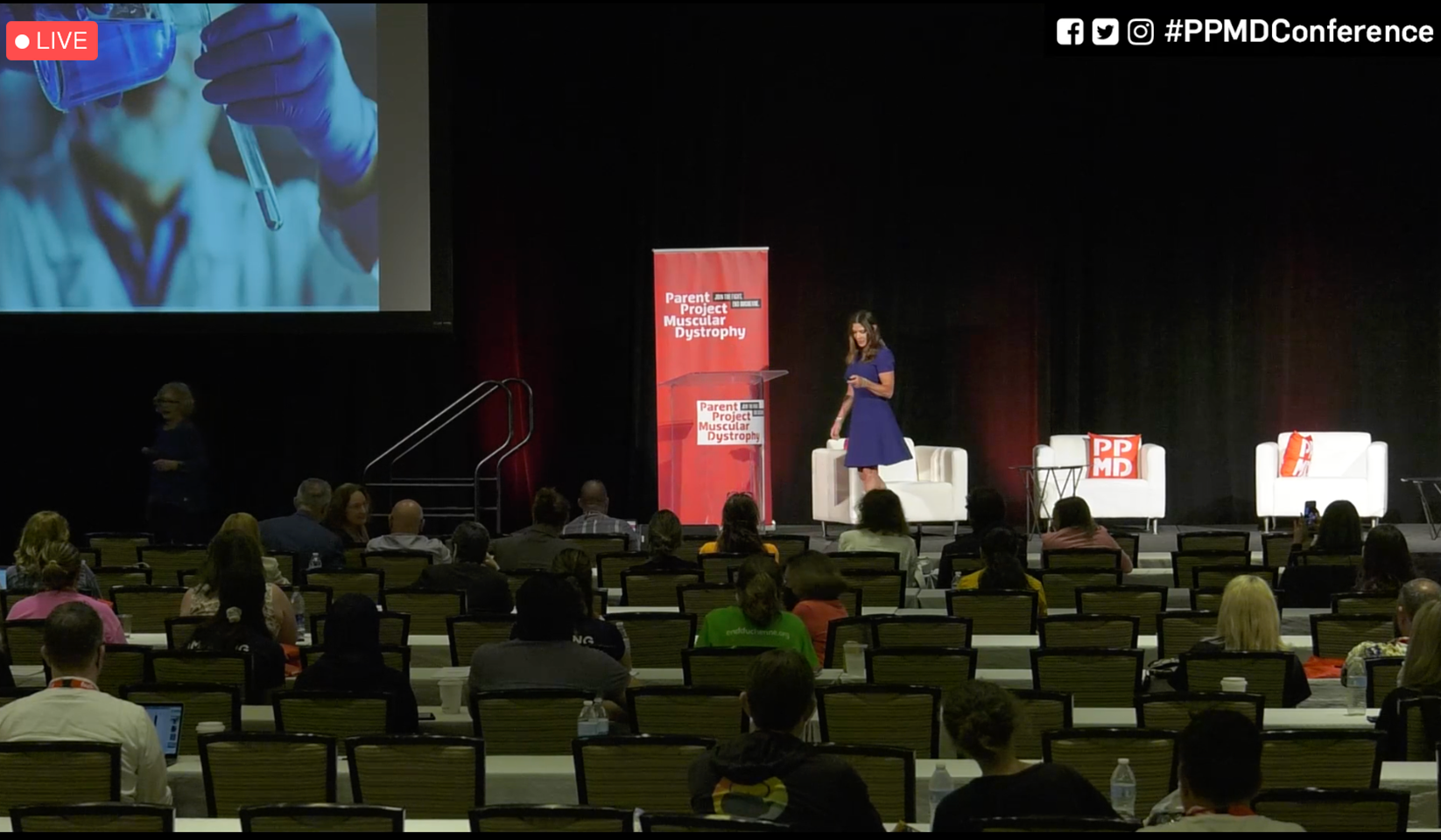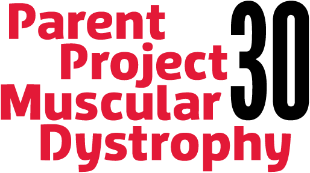
Dr. Linda Marbán, CEO of Capricor Therapeutics, presented a Late-Breaking News session at PPMD’s 2022 Annual Conference, announcing positive 1-year efficacy results from the ongoing HOPE-2 open label extension study of CAP-1002 in non-ambulant Duchenne patients.
More information can be found in an announcement from Capricor below.
Read the announcement:
Capricor Therapeutics Announces Statistically Significant Clinical Benefits in Skeletal Muscle Function in Non-Ambulant Duchenne Muscular Dystrophy Patients Treated with CAP-1002 in HOPE-2 Open Label Extension Study
-Met Primary Endpoint of Performance of the Upper Limb PUL 2.0 (p=0.02)-
-Results Suggest Disease Modification in DMD and Long-term Safety of CAP-1002-
-Results were Presented at Late Breaking Session at PPMD’s Annual Conference on Saturday June 25, 2022-
-Principal Investigator Dr. Craig McDonald and Capricor Management Will Host Conference Call and Webcast Today at 8:00 a.m. ET-
SAN DIEGO, June 27, 2022 (GLOBE NEWSWIRE) — Capricor Therapeutics (NASDAQ: CAPR), a biotechnology company focused on the development of transformative cell and exosome-based therapeutics for the treatment and prevention of muscular and other select diseases, today announced positive one-year results from its HOPE-2 open label extension study in non-ambulant patients with later-stage Duchenne muscular dystrophy (DMD). Data from the rollover open label extension (OLE) study show statistically significant improvements on the Performance of the Upper Limb (PUL version 2.0) scale for patients on CAP-1002 testing three different hypotheses of treatment benefit during the open label extension. Capricor presented these results at a late-breaking session at this year’s Parent Project Muscular Dystrophy (PPMD) Annual Conference .
Topline Efficacy Results
Difference in One Year Change from Baseline †
Difference
(95% Confidence Interval)
CAP-1002 (n=20) 1p-value Skeletal Muscle Function (Upper Limb) PUL Version 2.0 Open Label Extension Treatment Difference vs. HOPE-2 Treatment Difference 3.8 (0.5, 7.0) 0.023 Open Label Extension vs. HOPE-2 Placebo Group 2.3 (0.5, 4.1) 0.015 Open Label Extension vs. HOPE-2 Placebo Group off-treatment (Placebo GAP) 2.8 (0.8, 4.8) 0.006 † One year change from baseline for a phase refers to a subject’s change in one year during that phase.
1 The linear mixed model uses all available data for all 20 subjects (12 completers).In the study, CAP-1002 was made available to all of the original 20 patients enrolled in the HOPE-2 study. Of those, 13 entered and 12 completed the first year of study follow-up. As in HOPE-2, CAP-1002 was administered quarterly and current results are from the one-year analysis. The breakdown of patients included seven from the original placebo group and six from the original CAP-1002 treatment group.
“For patients with DMD, time is associated with loss of function. The progressive nature of the disease puts these patients on a slow, steady decline. Anything that we can do to delay the progression is an essential step in the right direction, allowing for patients to preserve key everyday activities requiring upper limb function,” said Dr. Craig McDonald, national Principal Investigator for HOPE-2 and University of California, Davis, Professor and Department of Physical Medicine and Rehabilitation Chair. “The initial HOPE-2 data, augmented with this new body of evidence showing slowing in the rate of decline with re-introduction of systemic cell therapy, indicate that CAP-1002, when used over time, is slowing DMD’s devastating effects and may be disease modifying.”
The FDA has granted Capricor’s CAP-1002 RMAT and Orphan Drug Designation , and the Company plans to present this data to the FDA and seek additional guidance on the best path forward for DMD patients. Capricor is currently conducting a pivotal Phase 3 trial, HOPE-3, designed as a randomized, double-blind, placebo-controlled study with approximately 70 patients and enrollment criteria similar to HOPE-2. The Phase 3 study is currently open for enrollment ( NCT05126758 ).
“The results from this study are impactful for patients suffering around the world. The open label extension phase of the HOPE-2 study is fairly unique in its design in that all patients were off CAP-1002 or placebo for a mean of approximately one year before resumption or initiation of therapy. These data suggest patients on CAP-1002 accumulate benefit over time where their skeletal muscle function is better preserved which may indicate a long term potential benefit of CAP-1002,” added Linda Marbán, Ph.D., CEO, Capricor. “This evidence builds on the results of the HOPE-2 study, recently published in The Lancet , that showed statistically significant improvements in upper limb function in the treatment group at 12 months.”
Dr. Marbán concluded, “Once the patient group that chose to enter the open label extension study began receiving CAP-1002 quarterly injections, we saw DMD’s progression slowing, which started within the first three months and continued for the entire year. Patients are now in their second year of treatment, and we look forward to sharing updates on this ongoing study as they become available. All of our findings to date suggest that CAP-1002 holds promise as a potential anchor therapy for non-ambulant DMD patients, a group for which few treatment options exist.”
CAP-1002 was generally safe and well-tolerated throughout the study, and the safety profile of patients treated in the open label portion of the study is consistent with that seen in previous studies. The HOPE-2 open label extension study remains ongoing, and all participants continue to be monitored for safety and functional performance.
Patients in the study were evaluated using the Performance of the Upper Limb (PUL 2.0), a validated tool specifically designed for assessing high (shoulder), mid (elbow) and distal (wrist and hand) function, with a conceptual framework reflecting the progression of weakness in upper limb function.
Conference Call and Webcast Details
Capricor will host a conference call and webcast with slides today, June 27, 2022, at 8:00 a.m. ET to discuss the data findings. To participate in the conference call, please dial 877-451-6152 (domestic) or 201-389-0879 (international) and reference the access code: 13730622
To participate via a webcast and view the slides, please click here . The webcast will be archived for approximately 30 days and will be available at http://capricor.com/news/events/ .
About HOPE-2 Open Label Extension (OLE) Study
HOPE-2 was a randomized, double-blind, placebo-controlled, Phase 2 clinical study of the Company’s lead investigational therapy, CAP-1002, in boys and young men who have DMD and are non-ambulant, the later stage of the disease process. The study was conducted at nine sites across the United States. Study patients were treated via intravenous delivery with either CAP-1002 (150 million cells per infusion) or placebo every 3 months. Data from a total of 20 patients was analyzed (12 placebo and 8 treated) at the 12-month time-point and the results were published in The Lancet . The study met its primary efficacy endpoint, PUL 1.2 mid-level dimension, showing a mean 12-month change from baseline in mid-level PUL 1.2, favoring CAP-1002 over placebo (2.6 point difference; (p=0.014). Cardiac MRI assessments showed improvements in heart function and structure with CAP-1002 treatment. Left ventricular ejection fraction (LVEF), a global measure of cardiac pump function, decreased significantly in the placebo group over time, but improved in the CAP-1002 group, showing a 107% slowing of progression of cardiac disease (p=0.002).
After the completion of the HOPE-2 study, all patients stopped treatment for approximately 392 days (mean, range [239, 567]), which is referred to as the gap phase. Then all eligible patients who wished to remain on treatment re-entered the open label extension protocol where they received CAP-1002 (150 million cells per infusion) every three months over the course of 1 year. Patients continued through the gap phase (off treatment for both groups) and the OLE Phase (on treatment for both groups).
About CAP-1002
CAP-1002 consists of allogeneic cardiosphere-derived cells, or CDCs, a type of progenitor cell that has been shown in pre-clinical and clinical studies to exert potent immunomodulatory activity and is being investigated for its potential to modify the immune system’s activity to encourage cellular regeneration. CDCs have been the subject of over 100 peer-reviewed scientific publications and have been administered to over 200 human patients across several clinical studies.



 by: Parent Project Muscular Dystrophy
by: Parent Project Muscular Dystrophy

